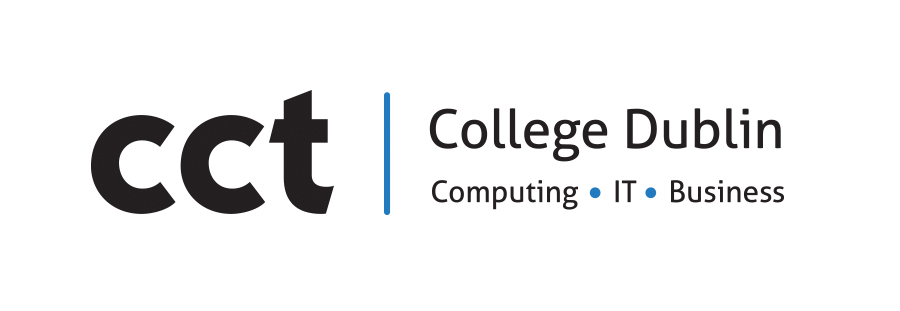27th Apr 2016
In an open letter to lawmakers, top business leaders, and 27 US governors, have urged the US Congress to boost computer science education.
An estimated 500,000 unfilled U.S. jobs require some level of computer-science understanding, yet three-quarters of the nation’s public schools do not offer any computer science courses, often sending companies turning to foreign workers for specialized skills. The federal government isn’t doing much to help: Virtually no federal funding is dedicated to enhancing computer science offerings in K-12 schools.
“It just seems so ridiculously obvious that our education policy has to include computer science as a basic. The fact that you’d even discuss it seems absurd,” said Barry Diller, chairman of the online travel company Expedia and of IAC, which owns websites including the Daily Beast, Dictionary.com and the dating site Match.com.
Hadi Partovi, the chief executive of Code.org — a nonprofit that has helped more than 100 school districts train teachers and expand computer science offerings — was a driving force behind Tuesday’s letter to Congress. He said that the range of industries represented — including retail, tech, finance, airlines, media and even the tractor company John Deere — shows that every business sector has an interest in ensuring that children are learning not just to use software, but to create it.
“Learning computer science in short bursts is not nearly as effective as having computer science as part of students’ continuous curriculum,” said Melinda Gates, who signed the letter. “Public schools are the only place we can ensure that all students, from all walks of life, have the chance to learn computer science.”
President Obama in January asked lawmakers to make a $4 billion investment in providing computer science to all students, calling it a “basic skill, right along with the three R’s.” Following this announcement, came more from Microsoft and Oracle (committing $200 million) on efforts to computer science education.
Here is the text of the open letter to Congress, followed by the full list of signatories:
Dear Members of Congress and fellow Americans,
As business leaders, elected officials, and educators, we join forces to deliver a bipartisan message about opportunity and the American Dream. Technology is transforming society at an unprecedented rate. Whether it’s smartphones or social networks, self-driving cars or personalized medicine, nothing embodies the American Dream so much as the opportunity to change or even reinvent the world with technology. And participating in this world requires access to computer science in our schools. We ask you to provide funding for every student in every school to have an opportunity to learn computer science.
Support for this idea is sweeping our nation. Ninety percent of parents want their children to have access to computer science education at school, and teachers agree. They know that technology opens doors. A hundred thousand teachers have taken matters into their own hands and already begun teaching computer science. Over 100 school districts are rolling out courses, from New York to Chicago to Los Angeles, from Miami to Las Vegas. Twenty states have passed policies and are now looking to support professional training for new computer science teachers. Private donors have collectively committed tens of millions of dollars to solving this problem, including $48 million of new commitments announced today by many of the undersigned.
Despite this groundswell, three-quarters of U.S. schools do not offer meaningful computer science courses. At a time when every industry in every state is impacted by advances in computer technology, our schools should give all students the opportunity to understand how this technology works, to learn how to be creators, coders, and makers — not just consumers. Instead, what is increasingly a basic skill is only available to the lucky few, leaving most students behind, particularly students of color and girls.
How is this acceptable? America leads the world in technology. We invented the personal computer, the Internet, e-commerce, social networking, and the smartphone. This is our chance to position the next generation to participate in the new American Dream.
Not only does computer science provide every student foundational knowledge, it also leads to the highest-paying, fastest-growing jobs in the U.S. economy. There are currently over 500,000 open computing jobs, in every sector, from manufacturing to banking, from agriculture to healthcare, but only 50,000 computer science graduates a year. Whether a student aspires to be a software engineer, or if she just wants a well-rounded education in today’s changing world, access to computer science in school is an economic imperative for our nation to remain competitive. And with the growing threat of cyber warfare, this is even a critical matter of national security. Despite this growing need, targeted federal funding to carry out these efforts in classrooms is virtually non-existent. This bipartisan issue can be addressed without growing the federal budget.
We urge you to amplify and accelerate the local efforts in classrooms, unlock opportunity in every state, and give an answer to all the parents and teachers who believe that every student, in every school, should have a chance to learn computer science.
Business Leaders
Arne Sorenson, CEO, Marriott
Barry Diller, Chairman, IAC and Expedia
Bill and Melinda Gates
Bobby Kotick, CEO, Activision Blizzard
Brad Smith, President, Microsoft
Brian Chesky, CEO, Airbnb
Brian Cornell, Chairman and CEO, Target
Doug McMillon, CEO, Walmart
Daniel Schulman, CEO, Paypal. Chairman, Symantec
Dara Khosrowshahi, CEO, Expedia
Devin Wenig, CEO, eBay
Doug Parker, Chairman and CEO, American Airlines
Edward Breen, Chairman and CEO, DuPont
Eric Schmidt, Executive Chairman, Alphabet, Inc.
Ginni Rometty, Chairman and CEO, IBM
Grant Verstandig, CEO, Rally Health
Herb Allen, President, Allen & Company
Jack Dorsey, CEO, Twitter and Square
James Murdoch, CEO, 21st Century Fox
James P. Gorman, Chairman and CEO, Morgan Stanley
Jeff Bezos, Chairman and CEO, Amazon
Jessica Alba, CEO, The Honest Company
Joe Lonsdale, Partner, 8VC. Founder, Palantir
John Donahoe, Chairman, Paypal
Julie Sweet, Chief Executive, Accenture North America
Larry Ellison, Executive Chairman and Chief Technology Officer, Oracle
Larry Fink, Chairman and CEO, BlackRock
Lowell McAdam, Chairman and CEO, Verizon
Marc Benioff, Chairman and CEO, Salesforce
Mark Cuban, Owner, Dallas Mavericks, Magnolia Pictures, Landmark Theatres
Mark Zuckerberg, Chairman and CEO, Facebook
Rami Rahim, CEO, Juniper Networks
Randall Stephenson, Chairman and CEO, AT&T
Reid Hoffman, Chairman, LinkedIn
Rich Barton, Chairman, Zillow
Richard Anderson, CEO, Delta Airlines
Robert A. Iger, Chairman and CEO, The Walt Disney Company
Sam Altman, President, Y Combinator
Samuel Allen, Chairman and CEO, John Deere
Satya Nadella, CEO, Microsoft
Sheryl Sandberg, COO, Facebook
Terry J. Lundgren, Chairman and CEO, Macy’s, Inc
Tim Cook, CEO, Apple
Vishal Sikka, CEO, Infosys
Governors
Asa Hutchinson, Governor, Arkansas (R)
Brian Sandoval, Governor, Nevada (R)
C.L. “Butch” Otter, Governor, Idaho (R)
Charlie Baker, Governor, Massachusetts (R)
Dannell P. Malloy, Governor, Connecticut (D)
David Y. Ige, Governor, Hawaii (D)
Earl Ray Tomblin, Governor, West Virginia (D)
Edmund G. Brown, Jr., Governor, California (D)
Gina M. Raimondo, Governor, Rhode Island (D)
Jack Dalrymple, Governor, North Dakota (R)
Jack Markell, Governor, Delaware (D)
Jay Inslee, Governor, Washington (D)
John Hickenlooper, Governor, Colorado (D)
Kate Brown, Governor, Oregon (D)
Maggie Hassan, Governor, New Hampshire (D)
Mark Dayton, Governor, Minnesota (D)
Mary Fallin, Governor, Oklahoma (R)
Matt Bevin, Governor, Kentucky (R)
Matt Mead, Governor, Wyoming (R)
Mike Pence, Governor, Indiana (R)
Peter Shumlin, Governor, Vermont (D)
Phil Bryant, Governor, Mississippi (R)
Rick Snyder, Governor, Michigan (R)
Steve Bullock, Governor, Montana (D)
Susana Martinez, Governor, New Mexico (R)
Terry Branstad, Governor, Iowa (R)
Terry McAuliffe, Governor, Virginia (D)
K-12 Leaders
Antwan Wilson, Superintendent, Oakland
Bob Runcie, Superintendent, Broward County Public Schools
Carmen Fariña, Chancellor, NYC Department of Education
Forrest Claypool, CEO, Chicago Public Schools
Kimberly Hill, Superintendent, Charles County Public Schools
Michelle King, Superintendent, Los Angeles Unified School District
Pat Skorkowsky, Superintendent, Clark County School District
Richard Carranza, Superintendent, San Francisco Unified School District
Susan Enfield, Superintendent, Highline Public Schools
Tom Torlakson, State Superintendent, California
Education / Nonprofit
Bobby Schnabel, CEO, Association for Computing Machinery
Cornell Brooks, President and CEO, NAACP
Daniel A. Domenech, Executive Director, AASA, The School
Superintendents Association
David Coleman, CEO, College Board
Elisa Villanueva Beard, CEO, Teach For America
Gail Connelly, ED, National Association of Elementary School Principals
Hadi Partovi, CEO, Code.org
Lee Hood, MD, PhD, President, Institute for Systems Biology. Co-founder, Amgen
Linda D. Hallman, CEO, American Association of University Women
Lucy Sanders, CEO, National Center for Women and IT
Mark Nelson, Executive Director, CS Teachers Association
Matthew Randazzo, CEO, National Math & Science Initiative
Peggy Brookins, CEO, National Board for Professional Teaching Standards
Telle Whitney, CEO, Anita Borg Institute for Women and Technology
Thomas J. Gentzel, Executive Director, National School Boards Association
Full story here.


